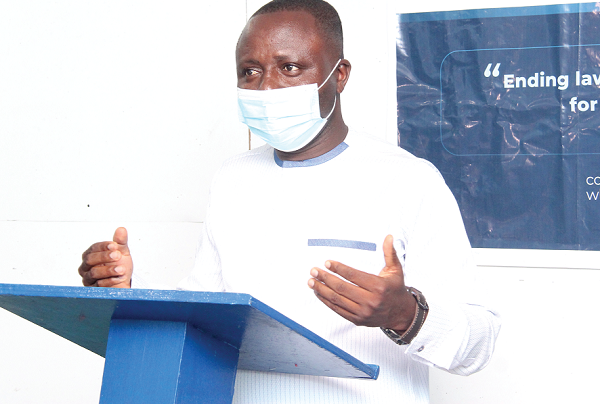
Govt entreated to support poor, vulnerable facing prosecutions
A Crime prevention advocacy organisation, Crime Check Foundation (CCF), has entreated the government to implement policies that would support the poor and the vulnerable facing prosecutions.
It said the country’s laws and justice delivery system were skewed against the vulnerable, the poor and vagrants, resulting in what the organisation described as criminalisation of poverty.
Advertisement
The Executive Director of the CCF, Mr Ibrahim Oppong Kwarteng, said the government must, as a matter of urgency, pass the Non-custodial Sentencing Bill into law so that offences such as hawking and open defecation would not attract custodial sentences.
He said in their quest to survive, the vagrants and the poor sometimes fell foul of the law, and due to their inability to afford the services of lawyers they normally ended up in jail.
“These poor people may not have access to toilet facilities or cannot afford such facilities. We however frame such people as major culprits and jail them, but those who failed to provide such facilities or created the conditions for the crime to be committed are let off the hook,” Mr Kwarteng said.
Training
Mr Kwarteng was speaking at a training workshop for journalists on vagrant laws in Accra.
Dubbed: “Decriminalising vagrancy laws and advocacy project”, it was organised in partnership with Open Society Initiative for West Africa (OSIWA).
The participants were taken through the court system, the justice delivery architecture of the county, human rights issues and some vagrants’ laws, including bye-laws.
Mr Kwarteng explained that the project was meant to sensitise vagrants and the poor in society to their rights.
The journalists, he said, were also being trained to appreciate the plight of the poor when reporting on crime and criminal justice issues.
“Vagrants are easily dragged to court for all manner of offences which they might not even understand. They cannot afford the services of lawyers, and when they go to court they are not able to explain themselves,” he said.
Vagrancy law
In May 2018, the African Court on Human and Peoples’ Rights gave an advisory opinion that vagrancy laws or laws which turn to target the poor violated the non-discrimination laws of the African Charter on Human Rights.
Mr Kwarteng said the opinion by the court showed that it was illegal to jail vagrants.
“Rather, the country can commit them to some form of community service. Unfortunately, we do not have a non-custodial sentencing regime,” he said.
A lawyer and resource person at the workshop, Ms Doris Bangfu, said most of the bye-laws by metropolitan, municipal, and district assemblies (MMDAs) were laws which discriminated against the poor and the homeless.
“Vagrancy laws criminalise the status of the poor and homeless, and not necessarily what they have done. These include loitering and hawking,” she added.
Responsibility
A senior journalist at the Ghana Broadcasting Corporation (GBC), Mr Abdul Haye Moomen, who was also a resource person, urged journalists to focus more attention on developmental issues.
He said journalists had a professional, ethical and moral duty to throw their lenses on issues concerning the poor, the vulnerable and the homeless to ensure change in society.
Writer’s email: [email protected]



